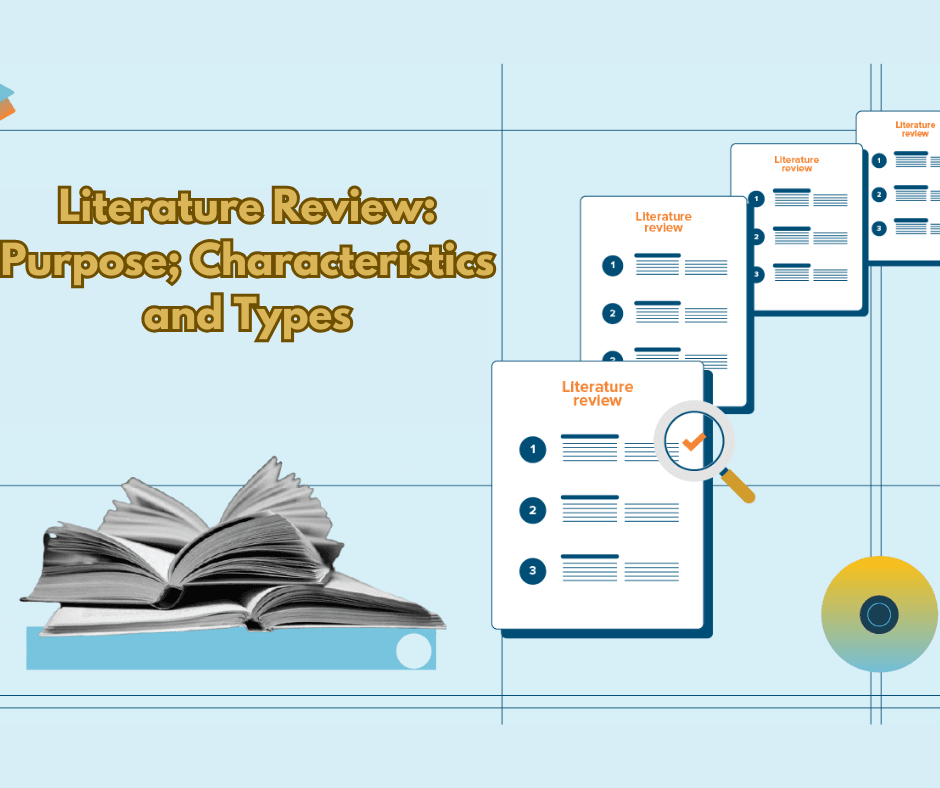A literature review is a comprehensive and systematic exploration of the existing body of literature pertinent to a specific subject or research topic. It serves as a foundational component for your research documents, illuminating the current state of knowledge surrounding the area of interest.
In essence, a literature review involves searching for relevant scholarly articles, theories, and studies and evaluating their contributions and implications for the field. This examination allows for a summarized overview of key findings while also synthesizing and critically analyzing the information to establish a robust theoretical framework.
By identifying gaps within the existing research, a literature review underscores the necessity for further investigation and elucidates how new research can address these voids. Importantly, an effective literature review goes beyond mere summarization; it engages with the sources deeper, highlighting their interconnections and relevance to the research question. This analytical approach enriches the overall understanding of the topic and helps to contextualize your research within the broader academic discourse.

Literature reviews serve several essential purposes in scholarly research, including the following:
a) Identifying Research Gaps: A literature review allows researchers to uncover what aspects of a topic have been thoroughly investigated and what areas remain underexplored. This insight can steer future inquiries and highlight opportunities for new research.
b) Data Source Exploration: By examining existing literature, researchers can identify various data sources utilized by other scholars. This can include datasets, surveys, interviews, or archival materials that might be beneficial for their research.
c) Understanding Definitions and Measurements: Researchers can learn from the work of others how key concepts in their field have been defined and operationalized. This knowledge is crucial for ensuring consistency and rigor in one’s own definitions and measurements in research.
d) Developing Alternative Research Projects: A comprehensive literature review can inspire the development of alternative research questions or projects by exposing researchers to different methodologies, perspectives, and findings from prior studies.
e) Contextualizing Your Work: Engaging with existing literature provides a broader context for one’s own research, allowing scholars to see how their work fits into the larger academic conversation and contributes to the field.
f) Demonstrating Scholarly Competence: A well-executed literature review showcases a researcher’s understanding of the field and their ability to critically evaluate and synthesize existing research. This not only reflects their scholarly acumen but also boosts the credibility of their own work.
g) Supporting Your Findings: A literature review can provide evidence to back up your assertions and findings, potentially bolstering your arguments with citations that demonstrate previous research and its relevance to your own conclusions.
Characteristics of an Effective Literature Review:
A) Clarity and Coherence: A good literature review communicates its findings clearly, summarizing the narrative and key insights from various sources, including articles, book chapters, and conference papers, in a way that is easily understandable.
B) Thematic and Theoretical Alignment: It should ensure that the selected literature aligns with the topic, subject matter, and theoretical framework guiding the research project, establishing a coherent narrative.
C) Comprehensive Coverage: The literature should range from broad inquiries to more focused examinations, ensuring it encompasses both international and local perspectives relevant to the topic.
D) Reliability of Sources: A strong literature review draws on authentic and respected resources such as Scopus, Web of Science, and other renowned academic indexing databases to ensure the credibility of the literature referenced.
There are six distinct types of literature reviews, each serving a unique purpose in academic research:
1. Integrative Review: This type of review aims to identify, analyze, and synthesize findings from a diverse range of independent studies, both quantitative and qualitative in nature. By combining various research designs and literature types, the integrative review provides a comprehensive overview of current knowledge on a specific topic. It emphasizes breadth, offering a wide-ranging conclusion that integrates insights drawn from multiple sources.
2. Argumentative Review: As the name suggests, an argumentative literature review selectively assesses existing literature to support or challenge a specific argument, deeply rooted assumption, or philosophical issue that has been established in prior research. One notable drawback of this approach is the potential for bias, as the review may be influenced by the author’s pre-existing viewpoints or selective interpretation of the literature.
3. Methodological Review: Focusing on specific methodological approaches, a methodological review organizes the literature around particular themes or issues rather than adhering to a chronological order. This structure allows the review to traverse different periods within a given section while emphasizing the importance of the research methods employed. It highlights the varying methodologies that different researchers have utilized to explore the topic at hand.
4. Systematic Review: A systematic review is characterized by its rigorous appraisal and synthesis of primary research papers, adhering to a well-documented methodology for both the search strategy and study selection. This meticulous process minimizes bias and enhances the reliability of the results. The transparent documentation of each step taken allows for the review to be reproduced and updated, making it a cornerstone of evidence-based practice.
5. Theoretical Review: The theoretical review delves into the body of theory that has accumulated around a specific issue, concept, or phenomenon. Its purpose is to critically examine existing theories, explore their interrelationships, assess the extent to which they have been investigated, and propose new hypotheses for future testing. This type of review is invaluable for illuminating the theoretical landscape and guiding further research inquiries.
6. Historical Review: This review type focuses on tracing the evolution of research on a particular issue, concept, theory, or phenomenon over time. It often begins by examining the earliest appearances of the topic in the literature and follows its development within the academic discipline. The goal is to contextualize research within its historical framework, demonstrating familiarity with significant advancements and identifying potential future research directions.
Each of these literature review types plays a crucial role in synthesizing knowledge, framing research questions, and guiding future inquiries within various academic fields.




I really happy to find this site on bing, just what I was searching for : D likewise saved to my bookmarks.
thanks a lot